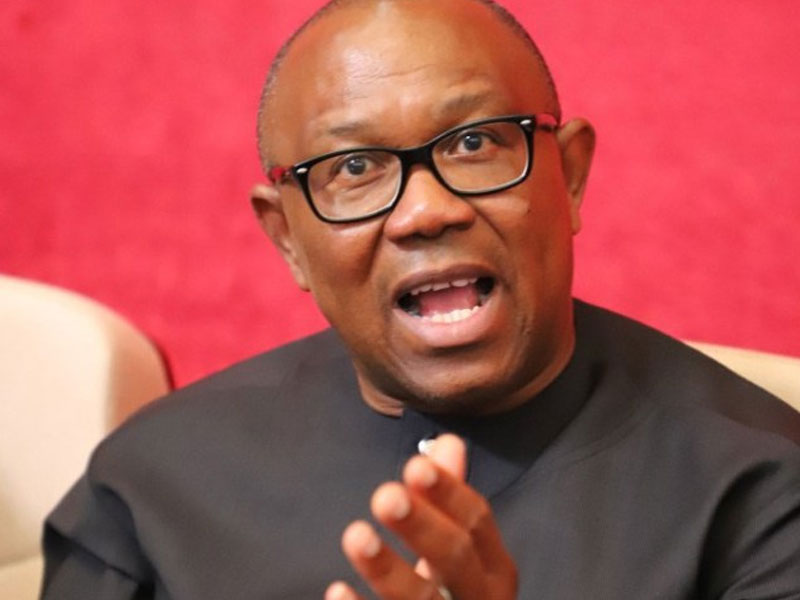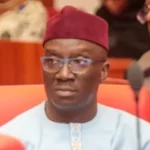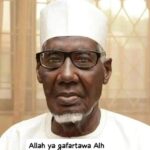The presidential candidate of the Labour Party (LP), Mr Peter Obi, last Monday, said that Nigeria exhibits some features of a failed state.
Obi, who was speaking at the just concluded Annual General Meeting (AGM) of the Nigerian Bar Association (NBA) while making a case for his candidacy, reminded Nigerians about the dangerous trajectory the country was treading.
The former Governor of Anambra State stated that, “It is important that we look where we are today for people to understand the gravity of the journey we are going to take if we are going to transit. Nigeria has qualified to be a failed state. We have made the two or three biggest characteristics of a failed state.”
Claim 1: Is Nigeria among top most terrorised countries?
Obi made some remarks about the failure of the security architecture of the country. He said, “Today we are among the top terrorised countries of the world. We are among the top kidnapping countries of the world, banditry; criminality, and bandits have taken over some parts of this country. Nigerians are being killed daily and all sorts of criminalities are going on daily.”
Verification:
The violent suppression of members of the violent Islamic movement, Jamā’at Ahl as-Sunnah lid-Da’wah wa’l-Jihād, popularly known as Boko Haram, in 2009 led to years of insurgency that killed thousands of Nigerians and displaced millions of others, mostly in the North Eastern part of the country. The activities of the group exposed the weakness of Nigeria’s security agencies, with a report by Reuters stating that the group in 2015 “controlled around 20 local government areas with a combined land size of Belgium.”
Thus, the activities of the group and its splinter sect, the Islamic State in West Africa Province (ISWAP), have made Nigeria to be consistently ranked in third position of world’s most terrorised countries by the Global Terrorism Index (GTI) since 2015.
But the report, which is published annually by the Institute for Economics and Peace (IEP), in its 2022 publication, indicated that Nigeria has moved down to the sixth position; which it said was due to “…successful counter-insurgency operations targeting Boko Haram where deaths caused by the group declined by 72 per cent between 2020 and 2021 – from 629 deaths to 178 deaths. Nigeria recorded the second biggest reduction in deaths.”
Even though the report stated that major terrorism activities are now conducted by ISWAP and other terror groups, the territory they once held sway has reduced to pockets of villages in the North East and sleeper cells across the country.
However, the country is now faced with a new form of terrorism in the North West; which is a mishmash of criminality, banditry and social injustice. The new wave of insecurity which is often attributed to the nomadic ethnic Fulani group, can be described as being fueled by pecuniary gains rather than ideological beliefs.
Thus, the major aspect of this form of criminality is kidnaping for ransom. Though, there is no accurate statistics on how much Nigerians have been forced to pay to secure their freedom from the hands of kidnappers, in the past two years billions of naira would have been paid as ransom to bandits, criminals and terrorist as the country witnesses cases of kidnapping daily.
On whether the country is among the top countries where kidnapping incidents occur, search on Google shows documentation on kidnapping is not well recorded compared to GTI, thus there is no data to make case if Nigeria truly sits at the top position of countries with highest cases of kidnapping.
Verdict: Partly true
While available data show Nigeria as among the top countries with terrorist attacks, there is no data to confirm if that could be said of cases of kidnapping in the country.
Claim 2: Did Nigeria lose 80 per cent of crude oil to theft?
Obi, while lamenting on the mismanagement of the country’s economy, made the assertion that Nigeria lost 80 per cent of its crude oil production to theft. He also claimed that Nigeria was the only country that failed to meet up its oil quota given by the Organisation of Petroleum Exporting Countries (OPEC).
He said, “Even our most important source of foreign revenue, oil, is today, 80 per cent stolen. That shows how bad it is. We are the only country, apart from Venezuela, which we know their own is because of sanctions, that is not meeting up its OPEC quota. Every other country is begging for an increase, but Nigeria is not meeting up its own.
“You won’t believe the quantity that was missing in July alone. Our quota is 1.8 million barrels. In July, our total average was 1.083 million barrels a day. That means in July, we lost 707,000 barrels per day (bpd). If you multiply that by 31 it will give you 22,227,000 barrels of oil we lost. This is a country that needs dollar. If you sell that oil at the average price of $110 it will give you $2.450bn, if you use an average of N550, you’ve lost N1,344,700,000,000trn; that is what is lost in one month because of stealing. It is important we know this.”
Verification:
Obi’s claim that 80 per cent of oil produced in Nigeria is stolen is not the first of such. Earlier in the year, the General Overseer of Redeemed Christian Church of God (RCCG), Pastor Enoch Adeboye, and UBA Group Chairman, Tony Elumelu, made the same claim. This led to the Nigerian Upstream Petroleum Regulatory Commission (NUPRC) to set up a panel to audit activities of operators in the upstream sector to ascertain the actual volume of oil lost to theft.
NUPRC stated that the audit process would cover the last two years. It, however, said the country lost more than 115,000bpd to oil theft and vandalism.
Also, the example that Obi gave to show the amount of money lost in Nigeria contradicts the 80 per cent narration. If the 1.08m barrels he claimed Nigeria produced was the 20 per cent of its OPEC quota, that means the country has the capacity to double the 1.5m bpd the organisation asked Nigeria to produce.
No doubt that the oil theft has been a source of worry for the federal government, as the Senior Special Assistant (SSA) to President Muhammadu Buhari on Media and Publicity, Malam Garba Shehu, recently admitted that it was a big problem for the country, hinting that in some cases law enforcement agents were culpable.
While speaking on Trust TV’s Politics Today, Shehu said it was embarrassing for Nigeria not to meet up with the quota given to it by OPEC.
However, it is not only Nigeria that is not meeting up with its OPEC quota. In June, a survey conducted by Reuters revealed that 10 OPEC members were not producing oil as pledged.
It identified production from Libya as the biggest in decline, followed by Nigeria. While Iraq could also not meet up, it said Saudi Arabian output was over 100,000bpd below its quota.
It is also important to note that Venezuela and Iran are not given quota to meet due to US sanctions on them.
Verdict: Claim is false
The federal government has debunked claims that the country is losing such huge oil production to theft even though it admitted that the situation occurred.
Claim 3: Did the federal government record 200 per cent deficit in expenditure?
Obi also claimed that, “We are in a fiscal mess. Between January and April, the total revenue of the Federal Government of Nigeria was N1.630trn; their expenditure was N4,720trn. If you minus this we had a deficit of N3,100trn. That shows almost 200 per cent was a deficit.”
Verification:
The Minister of Finance, Budget and National Planning, Mrs Zainab Ahmed, had during the Public Consultative Forum (PCF) on the draft federal government 2023 – 2025 Medium Term Fiscal Framework, said Nigeria was facing fiscal challenges due to its deficit.
She stated that this was because from January to April, 2022, the government’s retained revenue was only N1.63trn, 49 per cent of the pro rata target of N3.32trn,” adding that, “The actual spending as of April 31, was N4.72trn.”
Verdict: Claim is true
Claim 4: Are 70 million productive Nigerians unemployed?
Obi said that 70 million Nigerians were not working.
He said, “We have an economy that where we have over 100 million people are living in poverty. Your unemployment is one of the worst in the world because you have a combined unemployment of 50 per cent; unemployment and underemployment. Out of 200 million Nigerians, 50 per cent is supposed to be working, so we are supposed to have 120 million Nigerians working, but today, Nigerians that are working are under 50 million. So 70 million Nigerians are not working; they are not productive. So when you compare this to your production, you will see how low it is.”
Verification:
A report by the World Bank estimated that 42.6 per cent of Nigerians were below the poverty line. It stated that about 90 million Nigerians were expected to be poor by 2022, and due to the COVID-19 pandemic, the projection has increased to 95.1 million Nigerians.
On unemployment, the National Bureau of Statistics (NBS) in its last statistics, said the country’s unemployment rate as of the fourth quarter of 2020 stood at 33.3 per cent, while unemployment was 22.8 per cent – cumulatively 56.1 per cent.
But the figure does not suggest that 70 million Nigerians are not productive, since according to the figure 22.8 per cent of the working population had something to do but below their capacity.
More so, Nigeria’s population according to the United Nation’s World Population Prospect is estimated to be around 216 million, out of which 50 per cent is above the age of 18. So, if 108 million Nigerians are in the working age group, then 54 million should have been categorised as being unemployed through the calculation Obi made.
Verdict: This is misleading.
This fact-check is supported by Code for Africa through the Daily Trust Foundation.

 Join Daily Trust WhatsApp Community For Quick Access To News and Happenings Around You.
Join Daily Trust WhatsApp Community For Quick Access To News and Happenings Around You.


